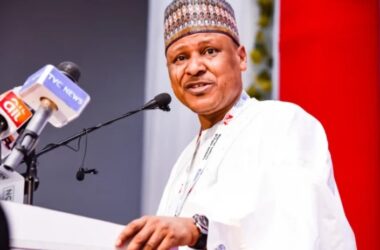Oil and gas industry experts are skeptical that President Bola Ahmed Tinubu’s recent directive to the Nigerian National Petroleum Company Limited (NNPCL) to sell crude oil in Naira to local refineries, including the Dangote Refinery, will alleviate the refinery’s ongoing challenges.
During the Federal Executive Council meeting on Monday, Tinubu authorized the NNPCL to sell crude oil in Naira to domestic refineries. This decision is part of an effort to address the crude oil supply crisis affecting local refineries.
Despite this, industry experts argue that the 650,000-barrel-per-day Dangote Refinery will continue to face hurdles. The refinery has struggled with crude oil supply issues and has had to seek imports from the United States and Brazil, despite Nigeria being Africa’s largest oil producer.
The refinery has also accused International Oil Companies in Nigeria of sabotaging its supply chain and has had regulatory compliance disputes with the Nigerian Midstream and Downstream Petroleum Regulatory Authority.
Aliko Dangote, Chairman of Dangote Group, has alleged that NNPCL officials are involved in overseas operations that complicate the local crude supply situation. Tinubu’s directive is intended to stabilize fuel prices and the dollar-naira exchange rate by ensuring that the country’s 450,000 barrels of crude meant for domestic consumption are sold in Naira, with Dangote Refinery as a pilot project.
Special Adviser to the President on Information and Publicity, Bayo Onanuga, emphasized that this move aims to stabilize the pump price of refined fuel and ease the foreign exchange burden. Zacch Adedeji, President’s Special Adviser on Revenue, noted that the decision could save Nigeria an estimated $7.3 billion annually and reduce monthly forex expenditure on petroleum products by $660 million.
However, industry professionals express doubts about the feasibility and impact of this policy. Ameh Madaki, Managing Partner of BBH Consulting, stated that Nigeria has no spare crude oil to sell to any refinery due to existing forward sale contracts. He suggested that crude oil for domestic consumption should be sold at the cost of production to prevent fraudulent subsidy payments.
Energy expert Joseph Eleojo praised the decision to sell crude in Naira but questioned NNPCL’s ability to supply the required crude. He indicated that this could highlight why local refineries have not operated efficiently for decades.
Dr. Diran Fawibe, Group Chairman of International Energy Services Limited, supported the policy, stating it would help refineries price their products correctly and reduce the pressure on the Naira and fuel imports. Meanwhile, Dr. Muda Yusuf, CEO of the Centre for the Promotion of Private Enterprise, stressed that while the decision is positive, NNPCL’s capacity to supply crude remains a significant challenge.










